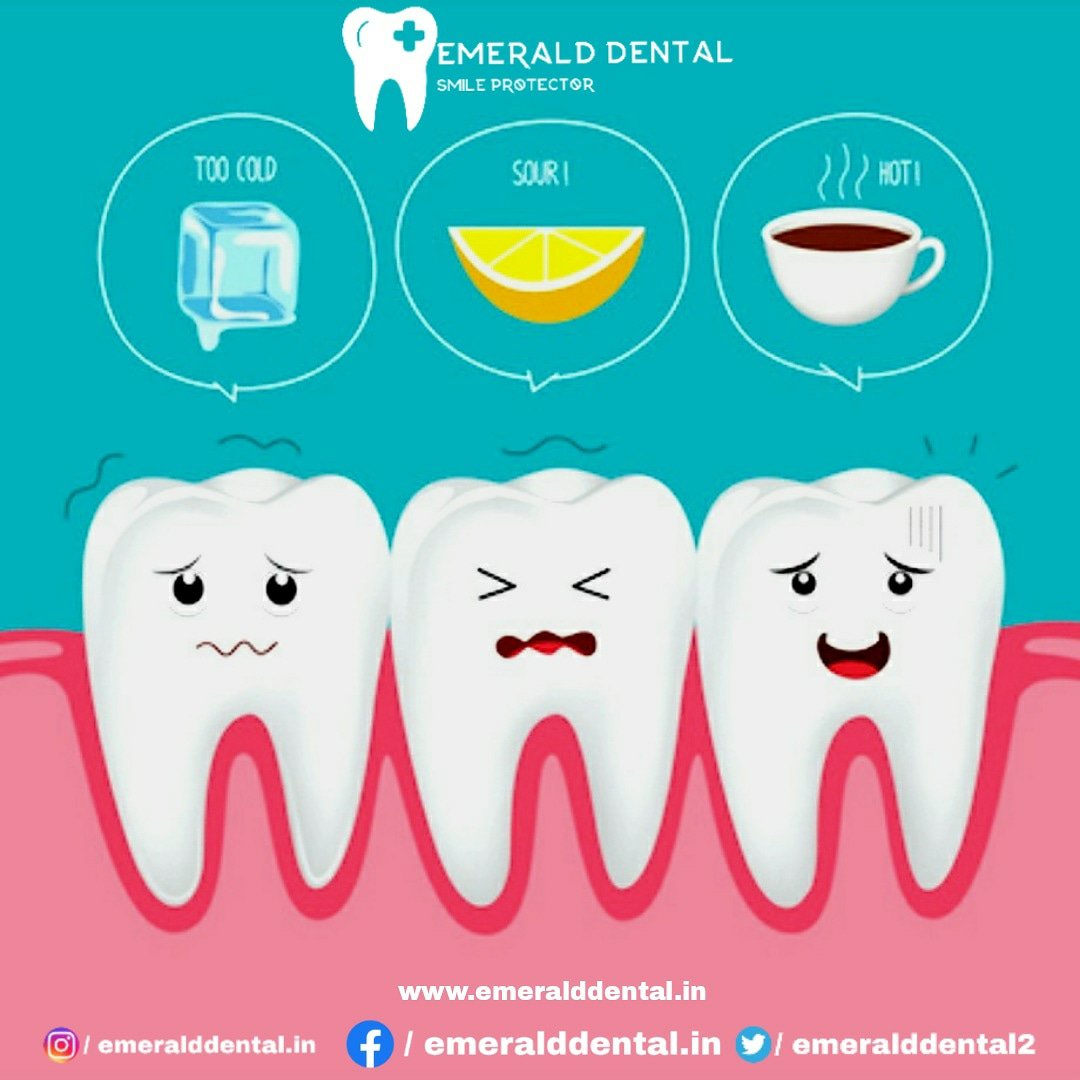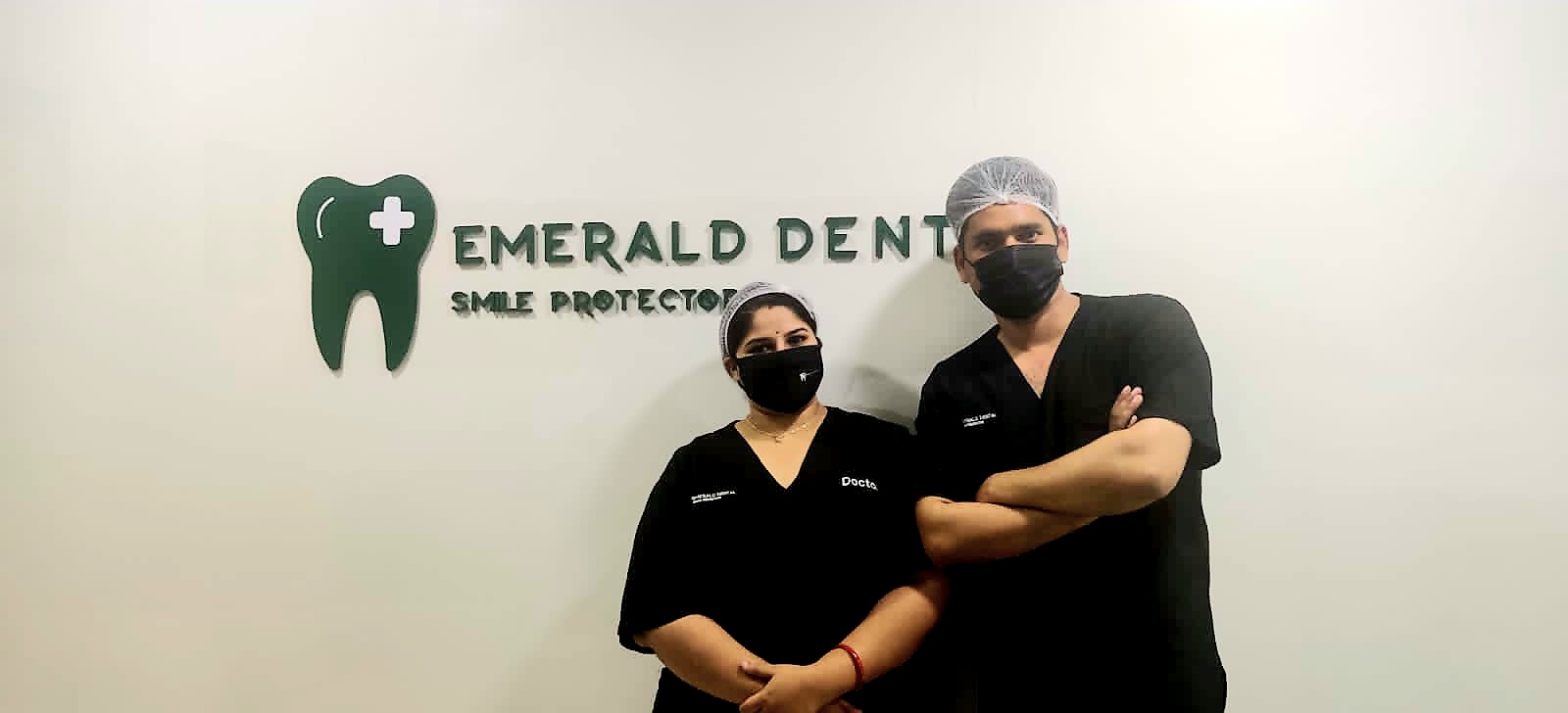

Have you ever felt pain or discomfort after a bite of ice cream or a spoonful of hot soup? Pain caused by hot or cold food could be a sign of cavity; it can also be noticed in people with sensitive teeth. Tooth sensitivity or “dentin hypersensitivity refers to pain or discomfort in the teeth as a response to certain stimuli, such as hot or cold temperatures.
Symptoms of sensitive teeth: You may experience pain or discomfort as a response to certain triggers. The most common triggers include:
Hot or cold foods and beverages.
Cold air.
Sweet or acidic foods and beverages.
Cold water, especially during routine dental cleanings.
Brushing or flossing teeth.
Alcohol-based mouth rinses.
What causes sensitive teeth?
Some people naturally have more sensitive teeth than others due to having thinner enamel. The enamel is the outer layer of the tooth that protects it. In many cases, the tooth’s enamel can be worn down from:
Brushing your teeth too hard with a hard toothbrush
Grinding the teethat night.
Regularly eating or drinking acidic foods and beverages.
Sometimes, other conditions can lead to tooth sensitivity. Gastro esophageal reflux (GERD), for example, can cause acid to come up from the stomach and esophagus, and may wear down teeth over time. Conditions that cause frequent vomiting – Gastroperesis and Bulimia can also cause acid to wear down the enamel.
Gum recession can leave sections of the tooth exposed and unprotected, also causing sensitivity
Tooth decay, broken teeth, chipped teeth and worn-down fillings or crowns can leave the dentin of the tooth exposed, causing sensitivity. Your teeth may be temporarily sensitive following dental work like fillings, crowns, or Teeth bleaching. This should subside after several days.
How are sensitive teeth diagnosed?
If you’re experiencing tooth sensitivity, make an appointment with your dentist. The tooth is examined and check for potential problems like cavities, loose fillings, or recessed gums that could be causing the sensitivity. This can be done during your routine dental cleaning, along with a visual examination. Dental X-rays may be done to rule out cavities.
How is tooth sensitivity treated?
Desensitizing toothpaste is made specifically for sensitive teeth. These toothpastes help block the discomfort from traveling to the nerve of the tooth.
An alcohol-free mouth rinse may be prescribed by your dentist, as it will be less irritating to sensitive teeth.
Use of soft bristled toothbrushes and brushing more gently can also help.
Receding gums can be treated by brushing more gently and maintaining good oral hygiene. In cases of intense sensitivity and discomfort due to severe gum recession, your dentist may recommend a gum graft. This procedure involves taking tissue from the palate and placing it over the root to protect the tooth.
You can use a mouth guard at night to prevent the grinding from damaging your teeth.
Your dentist may also apply fluoride gel or prescription-grade desensitizing agents in-office. These can help to strengthen the enamel and protect your teeth.
What’s the outlook for tooth sensitivity: You should also make an appointment with your dentist if you experience symptoms of cavities or potential root damage so you can get treatment quickly and prevent complications. These symptoms may include:
spontaneous tooth pain that occurs without an obvious cause
tooth sensitivity localized to one tooth
sharper pain instead of milder pain
staining on the surface of your teeth
Pain when biting down or chewing.
At Emerald Dental, we will be happy to answer your questions about tooth sensitivity and how it can be managed. You can visit us at our office in Gem Wellington building, HAL Old Airport Road,Murgeshpalya Bangalore or give us a call today at +91 6363 495 019 and set up a consultation appointment.
www.emeralddental.in
EmeraldDental



